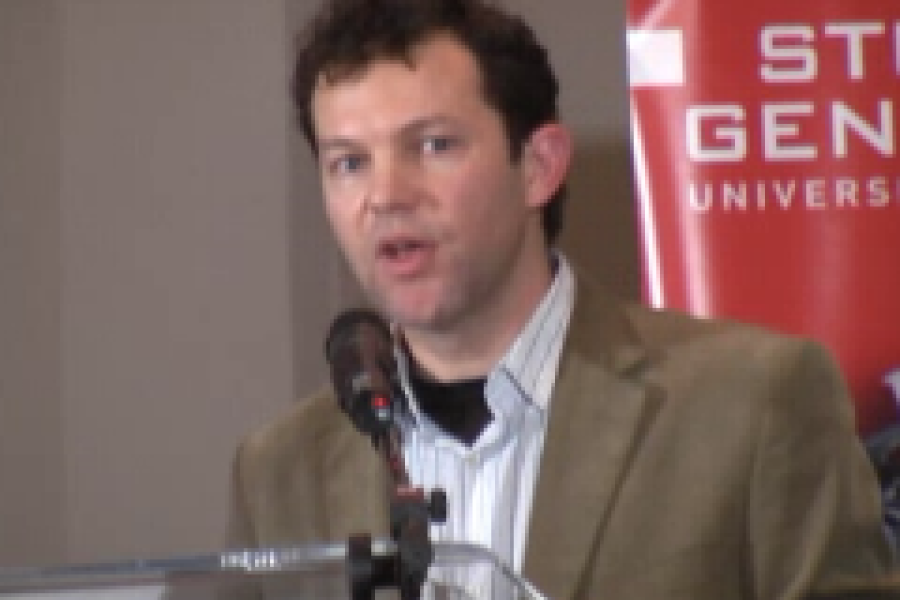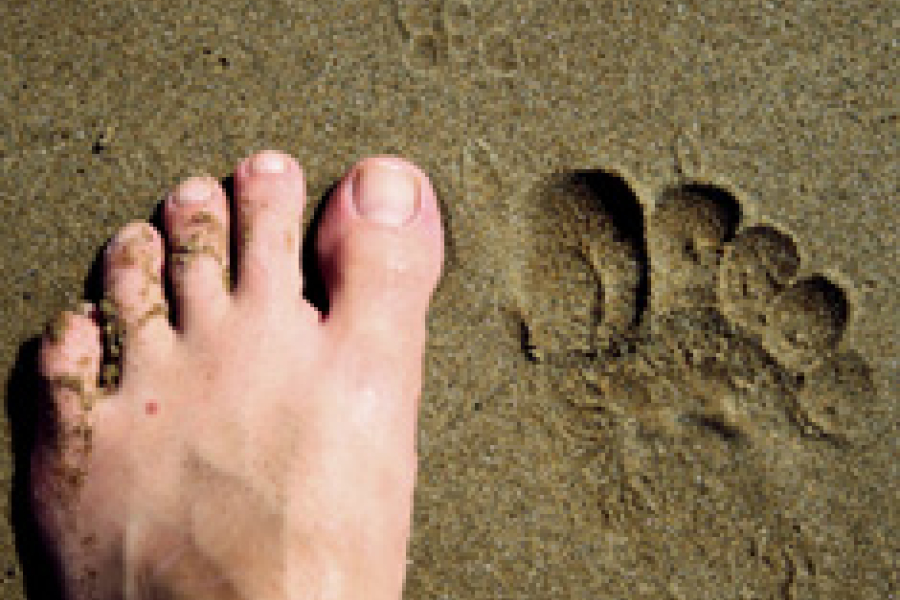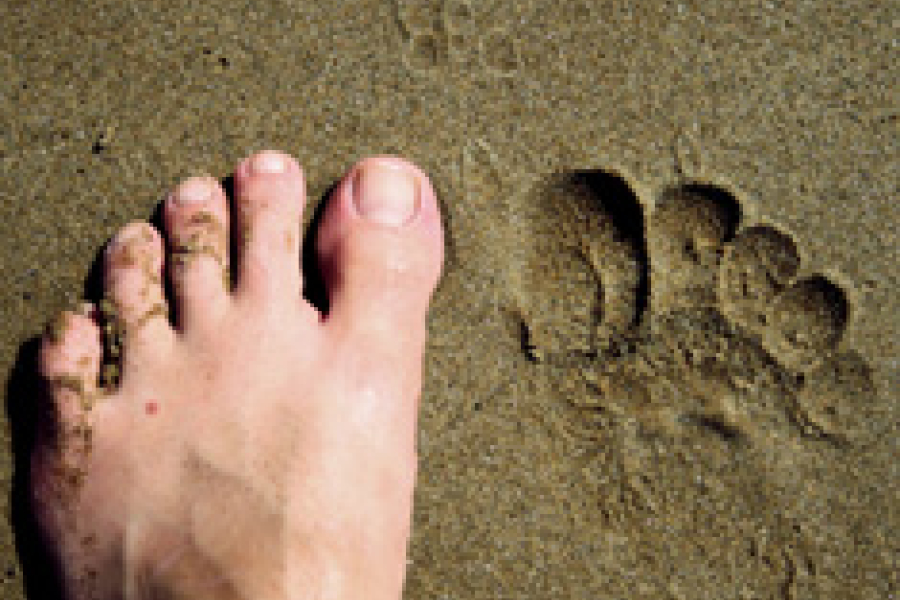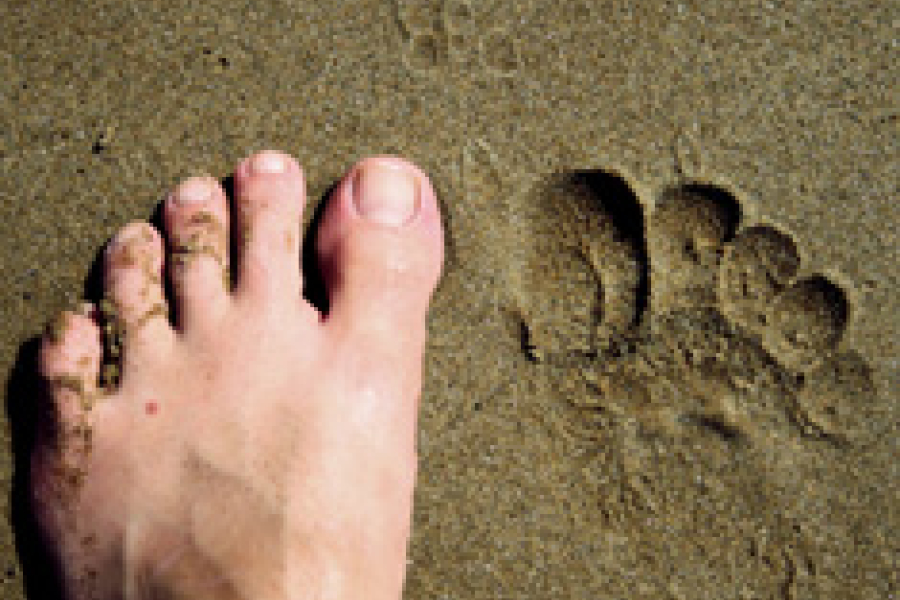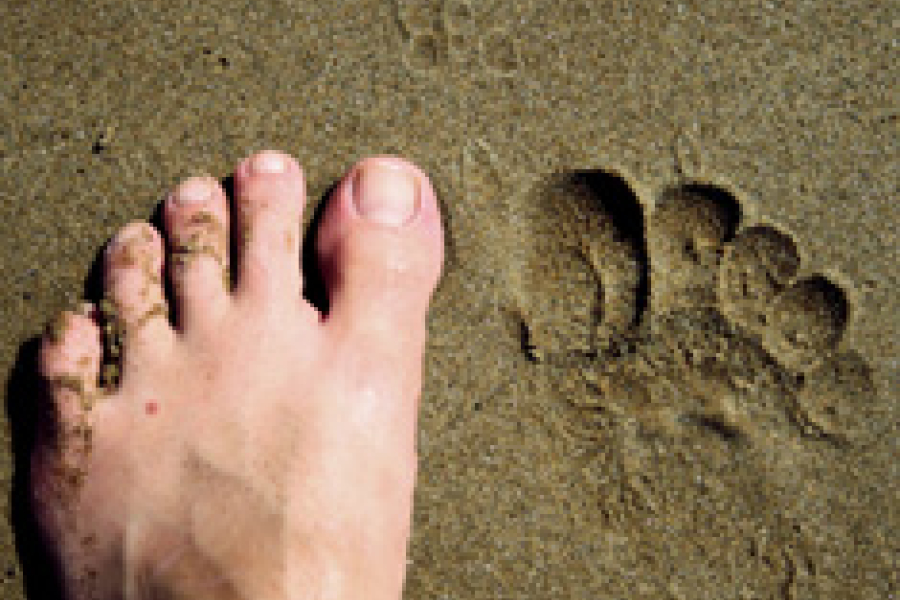Human rights: a new Utopia?

According to dr. Stephen Humphreys the link between climate change and violations of human rights is clear. But the human rights framework is a double edged sword. Being a legal framework it could end up protecting individual rights of those who for instance hold a lot of property already. Also its language is too utopian. If it already doesn't live up to its promises now (even now 1 billion people in the world are surviving on one dollar a day, living in slums or dying of malaria), how can we assume it will be effective when climate change continues and these effects will be amplified? Rather than using this framework Humphreys would point at the unique responsibility of states (as a source of law) for the collective welfare of their citizens. And at new governance mechanisms, out of court, for instance to mediate in technology transfer from developed to developing countries.
The legal perspective on Human Rights and Climate Change
In the series on human rights in times of climate change Stephen Humphreys was asked to further introduce the legal perspective. How can current law be used to protect victims of climate change? How does theory relate to practice? What type of risk is climate change and is it possible to protect against this risk by legal action using the existing international law, such as the Human Rights Framework or do we need a new legal frame or governance system?
Humphreys teaches at the London School of Economics and spent many years not only as an academic scholar researching international law, but also studying the effects of international legislation in practice. He was the Research Director at the International Council on Human Rights Policy in Geneva, where his research focused on environmental law. He acted as publications director for the Open Society Justice Initiative in New York, and before that he oversaw a project monitoring minority rights and discrimination in ten EU accession countries for the Open Society Institute in Budapest. He conducted research on climate change and the Kyoto mechanisms with ENDA Tiers Monde in Dakar, Senegal. In his book Human Rights and Climate Change (2009) Humphreys as an editor brought scholars of many disciplines together on this topic.
A weak legal framework
Both in theory and practice Humphreys doesn't see much reason for optimism in that the Human Rights framework can be helpful in addressing violations caused by climate change. This has to do with the very few cases in international law so far that address international accountability of states or other parties. Even if existing legislation was used and explained in terms of human rights – such as the right to property or the right to home and family it remains difficult to prove the duty of the state to protect not only its own citizens but also citizens of other states against wrongful acts or to make companies liable for harm. Just like the environmental law scholar Harm Dotinga pointed out earlier in this series of lectures, states don't like taking each other to court. And the legal aspect could even be used by individual parties to assert their right to emmissions.
Who's agenda is it?
But Humphreys critique goes further. He analyses the Human Rights debate as a post-1989 phenomenon. Of course the declaration was drafted in 1948, but there was a surge of international law after the Berlin Wall came down. After the end of the cold war the IPCC started collecting data on climate change, the Rio declaration was signed in 1992, the trade regime advocating unhampered international trade came into force in 1995 in Uruguay and the Security Council came to life again. And there was a huge push to promote Human Rights around the world. In jargon the debates differed, in language the Protocols and declarations differed, but it is clear that they addressed the spirit of the post-cold war era. The Rio declaration speaks of common but differentiated responsibilities for developed and developing countries, acknowledging a colonial heritage of underdevelopment that has to be compensated by the wealthier countries. Also in the trade regime this is recognized.
The spirit of the 90s and zeros
The human rights framework uses a different language, but has the same intentions and the same equality perspective. However where it started as a radical language of emancipation, almost utopian, today it is according to Humphreys at risk of becoming a legal language to minor problems. Also since the 1990s a lot of effort and money went into the ad hoc criminal law tribunals and since 9-1-2001 the war on terror dominated everything. The Human rights regime may still be important at the rhetorical level, it has a moral appeal, however Humphreys fears that especially the social and economic rights, for which a lot of new text was drafted in the last 20 years, replaced the existing language: Countries no longer speak about international welfare, but about investments as a means to development. The human rights framework is a weak replacement of the duty of states to reduce poverty, to enhance welfare and to contribute to each other's development. Humphreys doesn't offer much guidance but points at the possibility to design compensation and adaptation mechanisms to climate change vicitms for instance by transfer of technology, but out of court.
The state is here to stay
Also when addressing question form the audience it is clear that Humphreys feels the human right framework is too weak a legal framework to be effective against climate change. And he believes the discussion has been captured by corporations. For instance, he believes that the effort of professor Ruggie to translate the human rights declaration to responsibilities for transnational companies, which is now part of the OECD-guidelines on which transnational companies have to report, is leading us away from pointing at the responsibility of the state to legislate and act. Even if we acknowledge that some states are weak, and that also in the western world governments are reluctant to regulate and a lot of deregulation has already taken place, Humphreys believes these mechanisms are too weak to puts a real duty of care on companies.
The language we have ...
That leaves us with the analysis that from a legal point it is still the state – as a source of law - that is responsible for the distribution of risk and security. The question remains if all states can and will take this role. The spirit in which the Human Rights framework was originally drafted was that of protection of the individual against the totalitarian state. Now we are dealing with weak or reluctant states, increasing corporate power and a declining trust in markets. We have been warned not to trade one Utopia for the other, but it seems still important to express our values and use the language of human rights, even if it reduces the human rights framework to a moral rather than a legal force. So far it seems the best we have.
Interested in viewing the whole lecture? Watch the lecture 'Climate change victims and accountability perspectives' by dr. Stephen Humphreys.




